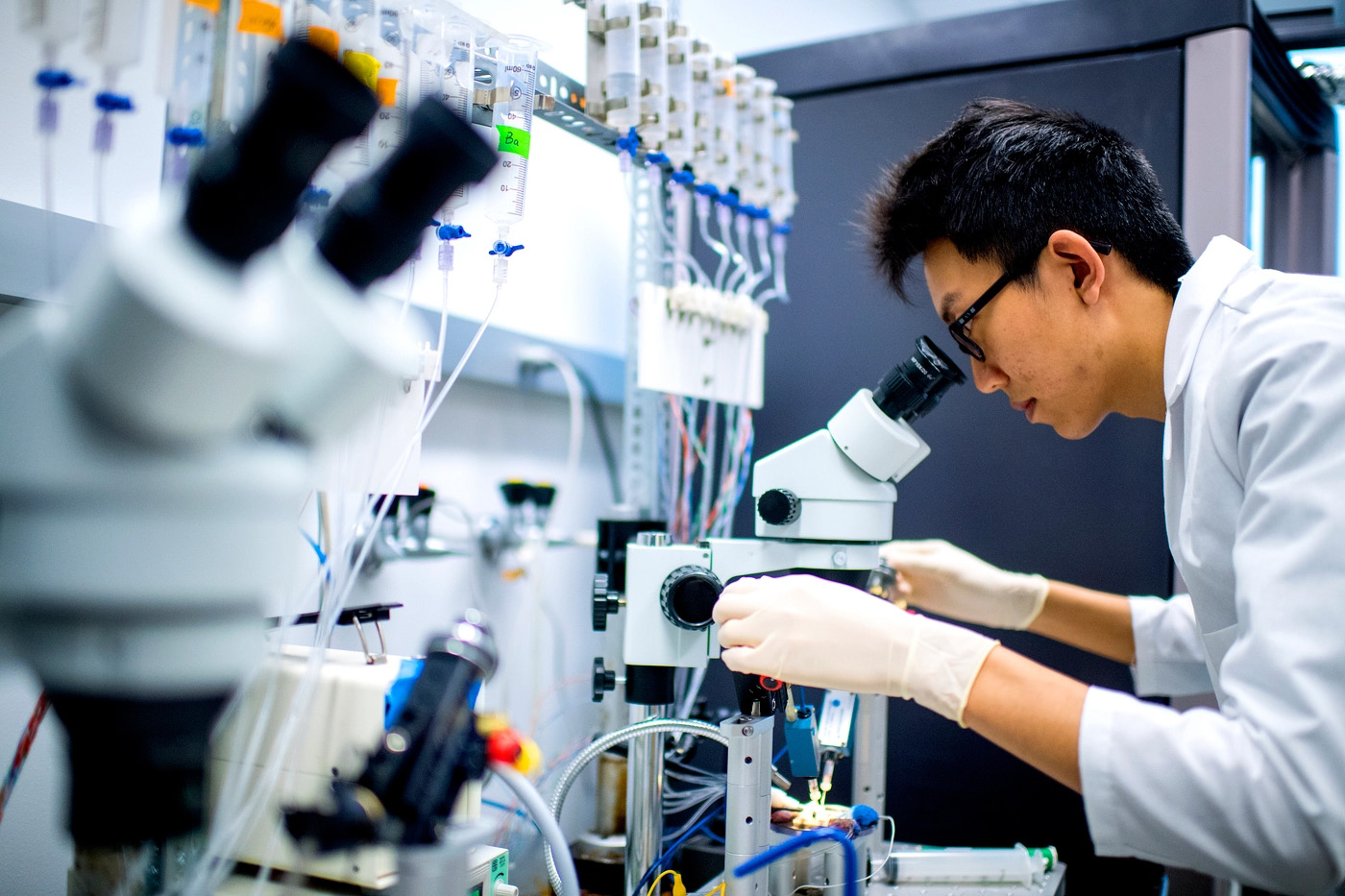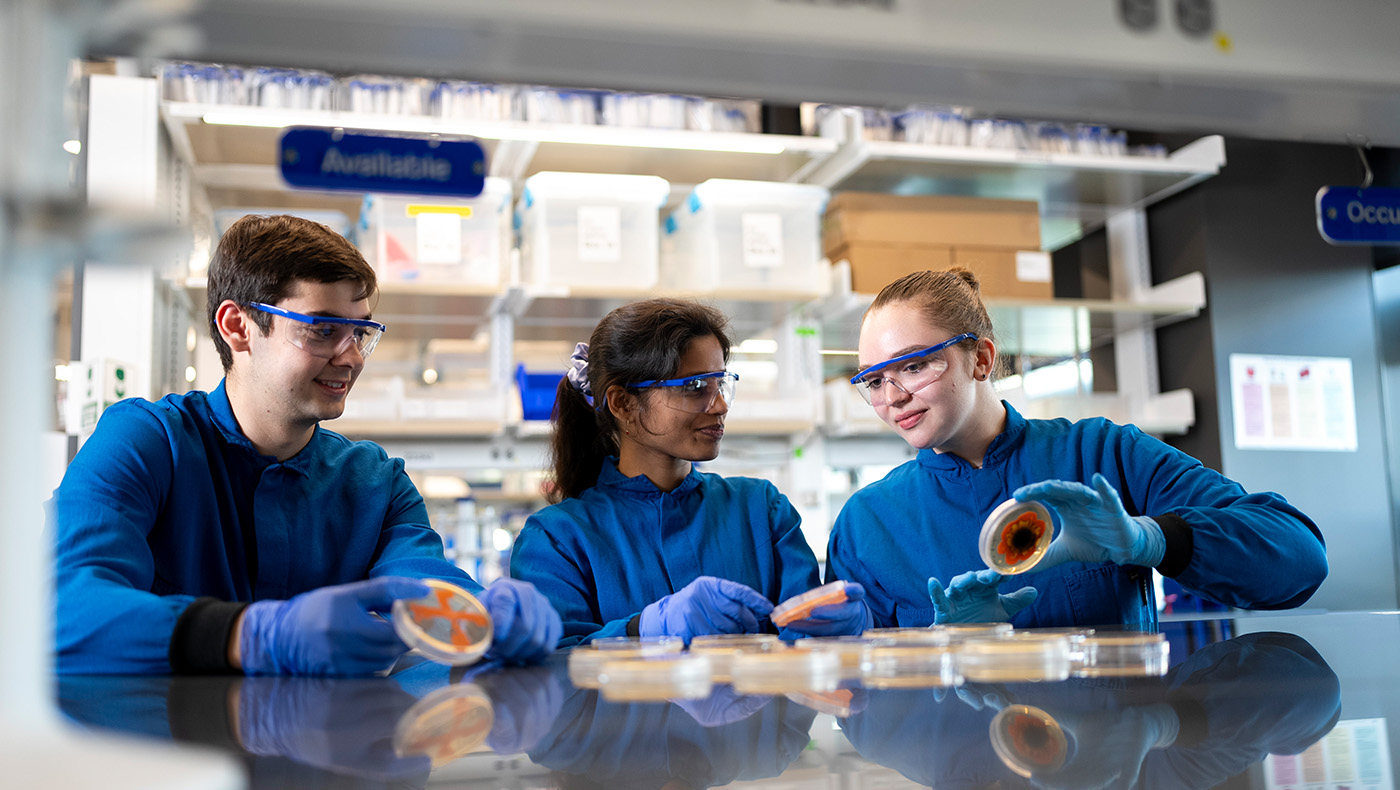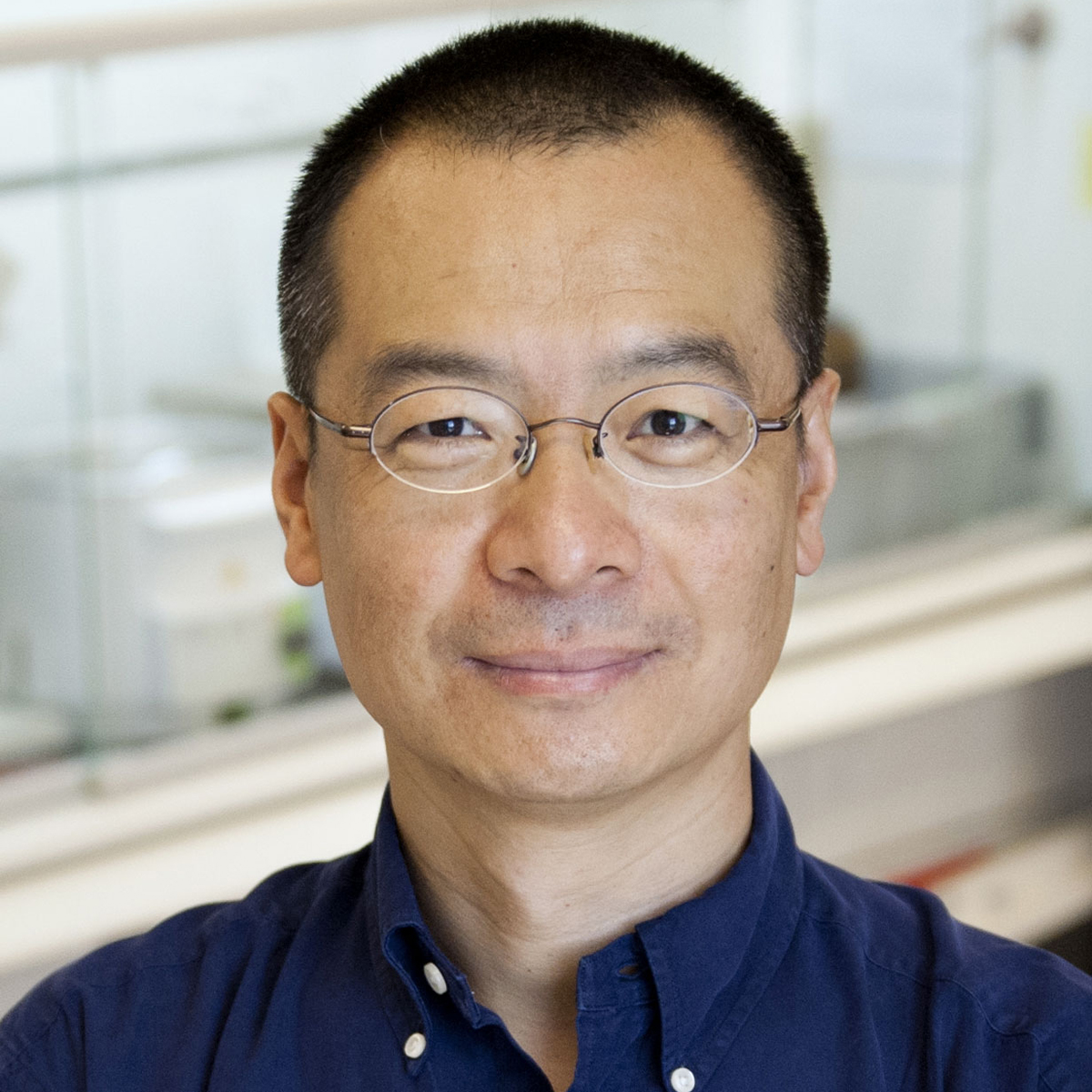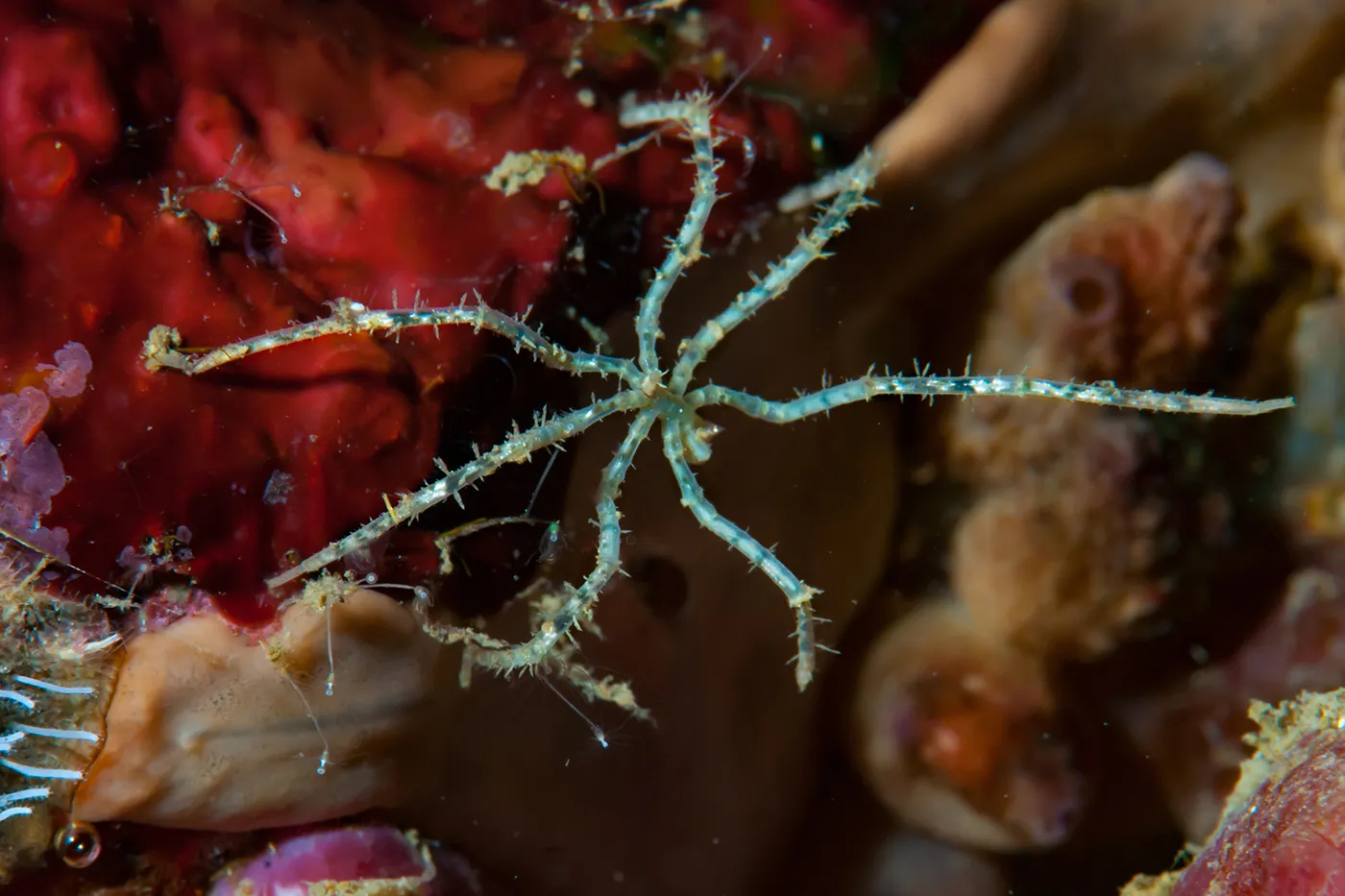Biochemistry
The Northeastern biochemistry program explores how cell structure, chemical bonds and energy transformations impact our understanding of the mechanisms of life and provide a strong foundation for a host of impactful careers in the life sciences.

Program Overview
A person has many trillions of cells in their body and at any given time, there are thousands of biochemical reactions taking place within those cells, even when the body is asleep. There are so many important jobs to be done – you are truly never at rest!
Your heart rate speeds up after you hear a loud noise. Your eyes are able to see what’s around you. Your blood sugar level lets you know whether you should break down that fuel and use it now, or whether you should store it in your muscles for later. How do these signals have meaning inside of us? Biochemists study these reactions and many more.
Understanding biochemical processes is a crucial step in problem-solving some of the world’s greatest challenges – disease, hunger, pollution. The success of vaccines to mitigate illnesses like smallpox, influenza, and coronavirus are examples that show how important it is to have a deep understanding of how diseases work and how they can be targeted.
Student Research Opportunities
Biochemistry research is interdisciplinary by nature, and there’s a broad array of laboratory research opportunities to explore here on campus, as well and nationally and internationally. Learn more about your research options for co-op, summer research, and more!
Biochemistry Education
Undergraduate Major
Students in this interdisciplinary program work in biochemistry, biology, chemistry, physics, and mathematics, with opportunities to study neuroscience, bioorganic chemistry, stem cell and regenerative biology, microbial biotechnology, and systems biology and engineering.
Combined Majors
This combined major from the College of Engineering and College of Science serves students who wish to develop both a scientific and an engineering mindset to solve problems in bioengineering and biochemistry.
This intercollege combined major serves students who would like to explore their interest in biochemistry while earning the benefit of a Bachelor of Science degree in chemical engineering
Undergraduate Minor
The biochemistry minor allows students to engage in interdisciplinary study of biochemistry to complement their major plans of study.
Accelerated Programs
Our BS/MS PlusOne programs allow students to pursue advanced degrees in a condensed period of time.
Bioinformatics, MS (PlusOne)
The MS in Bioinformatics program provides cross-disciplinary training in biology, computer science, and informational technology for today’s cutting-edge jobs in the biotechnology and pharmaceutical industries.
Biotechnology, MS (PlusOne)
This professional science master’s combines advanced interdisciplinary training in biology, chemistry, chemical engineering, and pharmaceutical science with the development of high-value business skills critical to success in today’s dynamic workplace.
Cell and Gene Therapies, MS (PlusOne)
This innovative nonthesis MS degree program prepares students for the evolving field of cell and gene therapy medicines. The industry-aligned curriculum provides the knowledge and experience to advance your biotechnology career.
Chemistry, MS (PlusOne)
This MS degree program offers concentrations in analytical, inorganic, organic, and physical chemistry, and in interdisciplinary fields such as polymers, materials, and bio-related chemistry.
Pre-Med and Pre-Health Track
Our PreMed and PreHealth Advising program offers personalized expertise to students pursuing health careers. This comprehensive program includes application guidance, workshops and presentations, course mapping and more.
Experiential Learning
-

Cooperative Education
With Northeastern situated in the heart of Boston, there is no shortage of co-op opportunities in the fields of biotechnology, biomedical, and healthcare. From penguin tanks at the New England Aquarium to infectious disease research at Massachusetts General Hospital, students have the chance to explore careers paths and gain experiences they never thought possible.
-

Global Experiences
Northeastern Biochemistry students have the opportunity to study at the University of Dundee, Scotland — the No. 1 rated Life Sciences university in the UK. This program also provides the opportunity to engage in hands-on research at one of the world’s emerging centers for biomedical research.
-

Entrepreneurship
Our Science Connects to Innovation Program empowers undergraduate science students through education, resources, and networks to create entrepreneurial solutions—spanning cleaner energy, eco-friendly pesticides, potential anticancer compounds, sustainable foods, and high-tech assistive devices.
Ready to apply?
Student Stories
Upcoming events
-
Jun 1


















